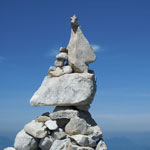
Photo: Jacqueline Munguía, Unsplash
Mushrooms & Depression. Eating The Right Fungus Helps Your Mind!:
With Big Data and Machine Learning, there is every chance that today’s healthcare will look prehistoric in about 100 years.
And to look forward, we sometimes start by looking back; and remembering that ancient man was not really stupid.
Some crazy folk-healing witch living on the edge of a forest 1700+ years ago likely used some pretty weird stuff to fix people’s health problems.
That weird stuff probably also worked.
So in another chapter of what be called a Superfood, researchers are finding out that another weird thing might have a few more health tricks up its sleeve than anyone in the past 1700 years imagined (except witches)…
The Short Answer:
- Even though medicine likes to think it’s correct, much of it will be improved through technology.
- Some older medical solutions might not be as wacky as they seem now.
- Research has recently found out that psychedelics can help treat depression.
- Science also has a fairly good idea how it works; through neurogenesis.
- This is similar to the action of anti-depressants or cardiovascular exercise like running.
- Previous work showed inhaling the right mushroom bacteria spores raised serotonin levels.
- The recent work by PSU shows that even mushroom consumption in the diet is associated with lower levels of depression.
- These results were found across 11 years of data from NHANES across almost 25,000 subjects.
- This included Caucasian women, average-aged 45, even when controlled for factors like medication.
- The PSU researchers theorized this may be working through either anti-inflammatories, or the anti-oxidant action of the amino acid ergothioneine.
- There are other possibilities because mushrooms also contain potassium and a wide array of bioactive substances.
- Anything that reduces inflammation or oxidative stress in the brain is a candidate, because inflammation has been recently found to also be a component of depression.
- Even though the subjects most likely ate the standard white button mushrooms, many other varieties could be helpful.
- One called “Lion’s Mane” is known particularly for it’s psychoactive action and likely increase in neurogenesis.
Read on to find out the details…
→ Show/Hide Table Of Contents ←
Science Found Out What Witches & Hippies Were Onto With Magic Mushrooms:
Most of us have heard recently about the amazing effects of Magic Mushrooms,
And their miraculous effects on treatment-resistant depression.
So maybe those hippie-sorcerers of the 1960s weren’t so bad after-all.
It’s just that their ideas eventually lead to the munchies, which leads to Ben & Jerry’s, which eventually leads to obesity and heart-disease.
So you could take it too far.
Cardio Exercise And Psychedelics For Brain-Cell Growth:
But before you do, the really interesting thing about them is that they act on the brain in ways very similar to prozac or running,
By getting the brain to grow new brain-cells, and create the environment in which they survive.
–Even better for magic mushrooms is that they seem to create some very large & strong neurons when compared to the standard variety.
And the coolest part of the recent work is that it looks like you may not even have to have the magic kind!
Go Outside, Play, And Get Your Vitamin D & Mushroom Spores:
Because if your mother’s advice to go play outside wasn’t healthy enough for you in getting both some vitamin d,
And possibly the wacky mushroom spores in the air out there that actually can improve your mood and reduce depression,
Penn State’s team shows in some recent work that even -eating- mushrooms on a regular basis might lower your risk of depression, too!
11 Years & Almost 25,000 Subjects With Lower Depression. -From Mushrooms:
By examining data from an 11-year study that spanned over 24,000 subjects,
The PSU team found the addition of moderate amounts of mushroom consumption to a normal diet were highly-correlated with the anti-depressant effect.
As far as the type goes, it’s hard to know but there is every chance the effects are mostly from the standard white button mushroom, which is the most consumed of them all.
The group of people most likely to consume mushrooms were college-educated Caucasian women with an average age of 45.
What’s more interesting is that with all the anti-depressant/anti-anxiety use in the country, especially in that demographic,
Thee results still held, even while controlling for a large swath of other factors, including psychoactive medicationsc
How Exactly Do Scientists Think This Is Working?:
So how the hell is this working?
Could it be some kind of spores like the M.Vaccae mycobacterium from the earlier work you’d most likely inhale near a dairy farm?
Who knows? On a smaller & more local scale, I don’t think supermarket mushrooms are cleaned any more than just knocking most of the dirt off of them before they’re boxed & shipped, so maybe.
But there’s another angle.
Because as we found in the post about free-radical production from sweets worsening SAD,
We also learned that antioxidants really do help in our bodies, even if they don’t make it inside the cells, as was once the hope.
And guess what the study authors point out?
Mushrooms Are Naturally Jam-Packed With Bioactive Goodness!:
Mushrooms, in addition to their anti-anxiety potassium content, wide array of bioactive compounds and anti-inflammatories,
Are also high in an antioxidant amino called ergothioneine.
So since antioxidants can help all kinds of mental issues, why couldn’t ergothioneine help reduce depression?
Strangely-enough even if it or some other compound/combination have an anti-inflammatory effect,
That would be very similar to the prior work on the M.Vaccae mycobacterium that even helps people raise their serotonin levels if they so much as breathe in spores that are in the air.
Inflammation, Inflammation, Spreading All Across Cog-Nation!:
And another thing we learned awhile back is that several psychological conditions, particularly depression, can have a causal component of inflammation!
So in addition to things like Fish Oil and psycho-biotics,
Perhaps mushrooms are acting in multiple ways, including by reducing inflammation?
Also if that’s true and these food-based anti-inflammatories are effective, let’s take a moment to appreciate all the other things they might be helping out with.
Like reducing -any- problem related to the excess inflammation we have these days, even from getting a really imbalanced excess of Omega 6 oils in our diet!
Fixing Our Pro-Inflammatory Diet, & Some Even Weirder Non-LSD Mushroomage:
So perhaps there are even more serious conditions that they could help influence or prevent in some small positive way over time?
And if you want to get even weirder, the herbalist crowd would tell you that a specific type of mushroom called, “Lion’s Mane” might even have similar properties to the aforementioned Magic Mushrooms or Running
And might help people avoid anxiety, depression, and other psychological problems through its association with new brain-cell growth.
(Yes by the way, neurogenesis is possible even though SCIENCE liked to tell us it wasn’t for such a long time. But SCIENCE was WRONG!)
The herbalists probably have even weirder and outlandish ideas with things like Reishi or alleged herbal-antibiotic, AHCC.
There is even a new Kombucha out made with all kinds of crazy mushroom varieties that’s supposed to help with immunity, stress, sleep, and fatigue.
Maybe their customers will be healthier, happier, and less depressed, also?
With everything we’re learning about the amazing & helpful substances that we can get through nutrition alone, who knows? (aside from the amazing Dr. Joel Fuhrman)
Maybe in 100 mushroomy years from now, all the 15th century herbalist witches will be proved right, after all?
References & Links:
• Source: PSU
• Source Study: J.AffDis – Mushroom intake and depression: A population-based study using data from the US National Health and Nutrition Examination Survey (NHANES), 2005–2016















